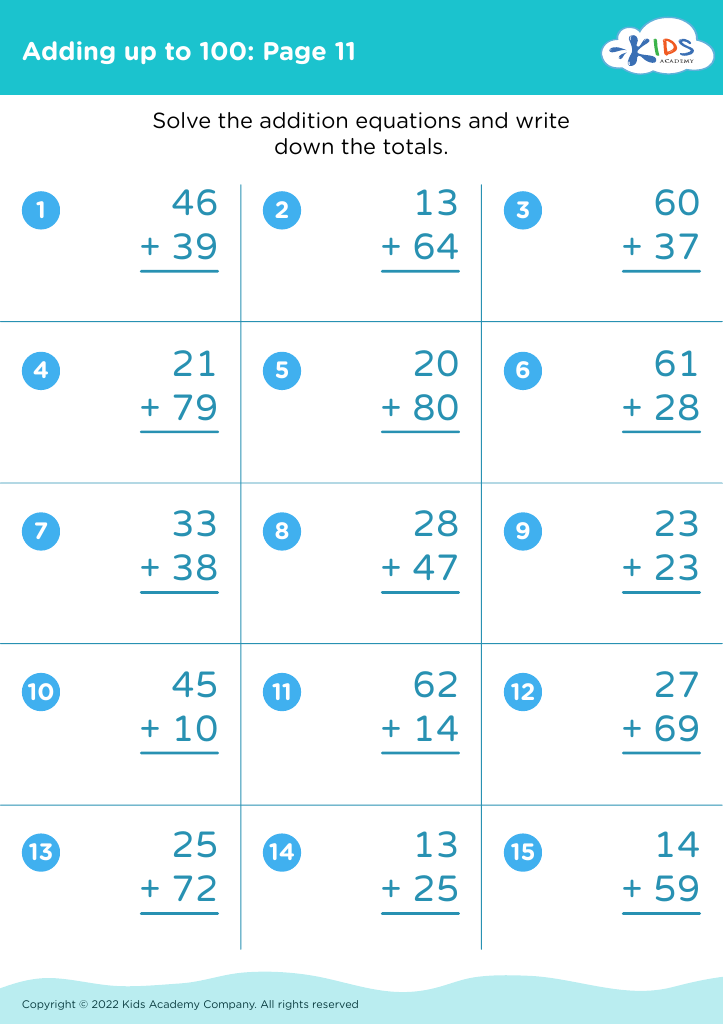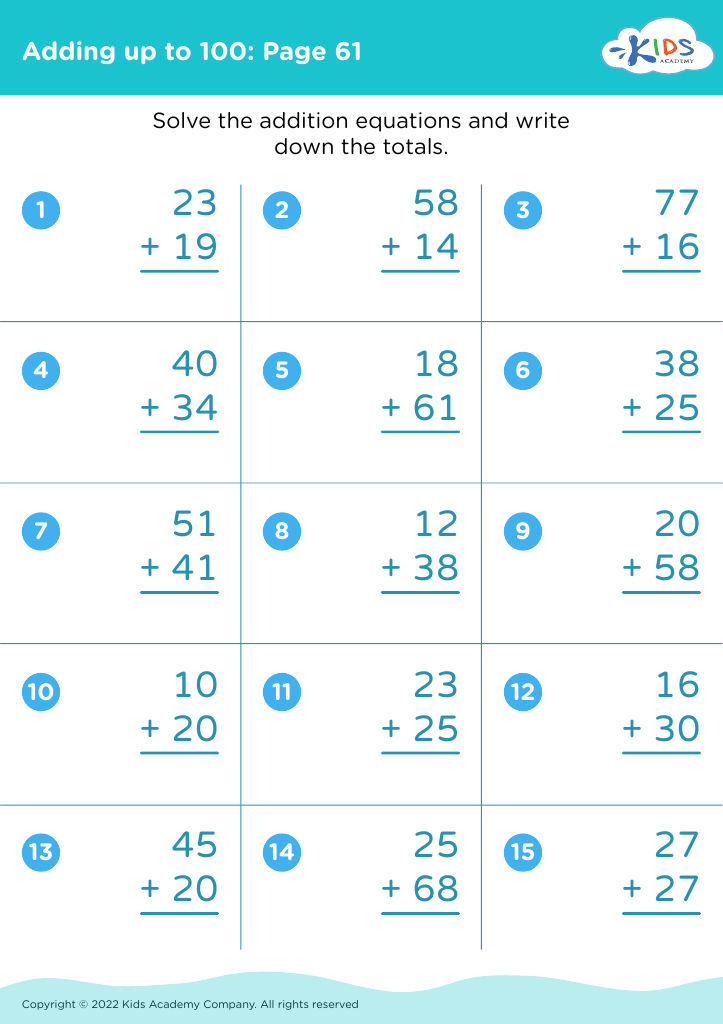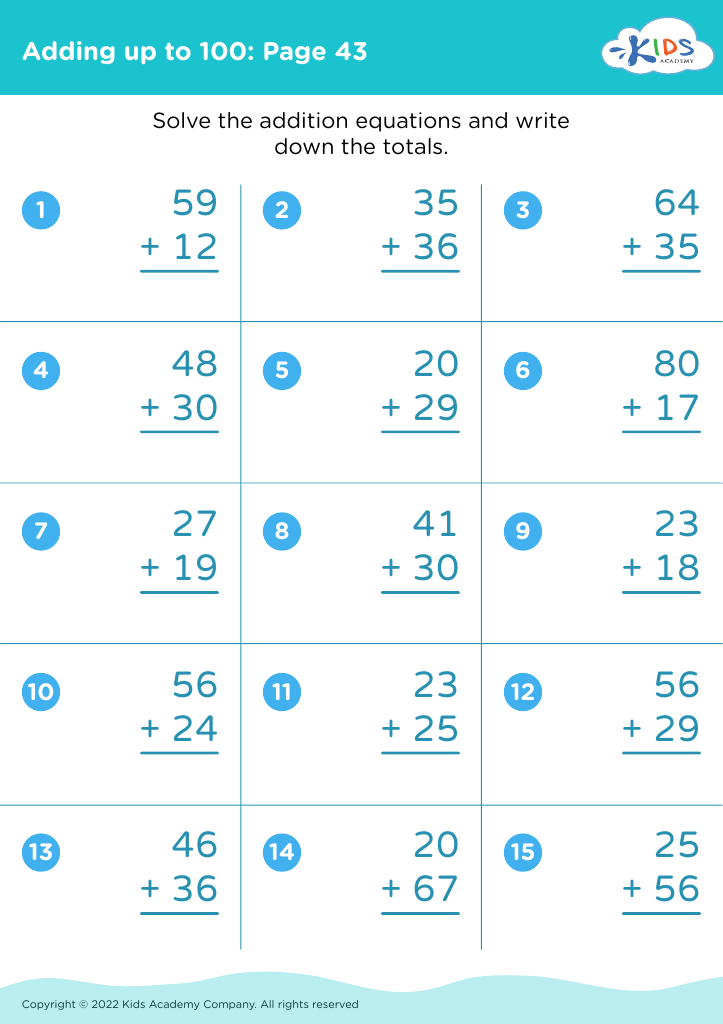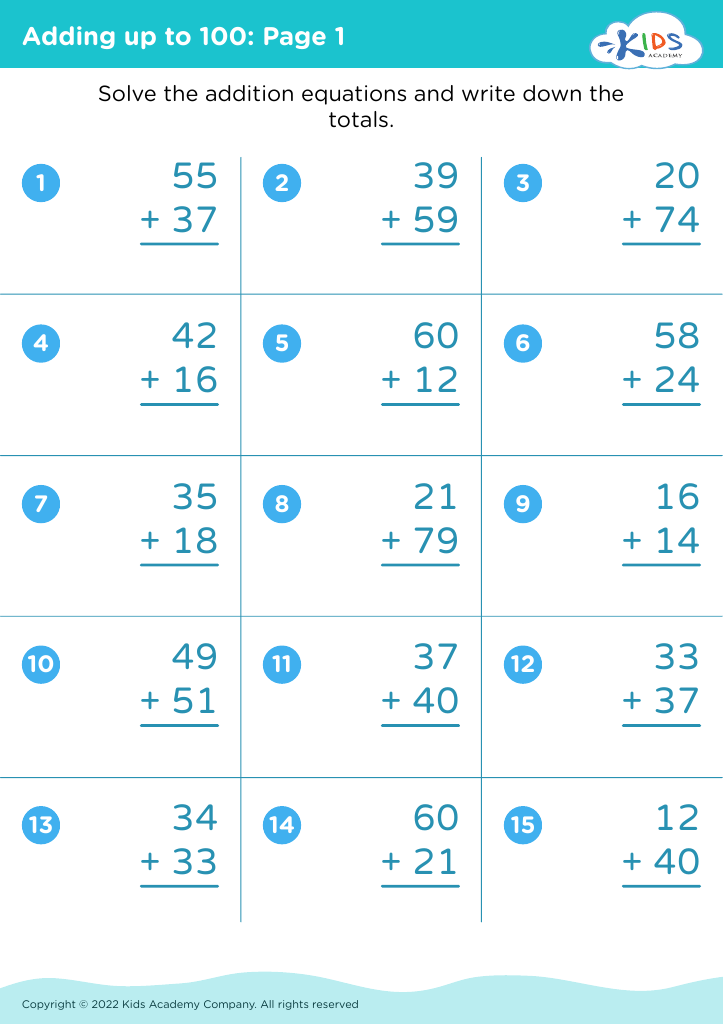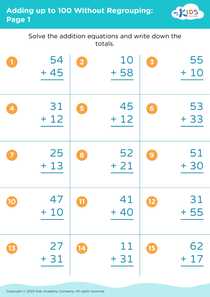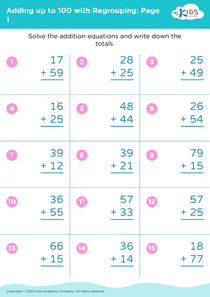Number Recognition Adding up to 100 Misc Worksheets for Ages 7-8
8 filtered results
-
From - To
Enhance your child's number recognition skills with our engaging "Adding Up to 100" miscellaneous worksheets designed specifically for ages 7-8. These printable activities offer a fun and interactive way for young learners to practice counting, identifying numbers, and mastering addition up to 100. Each worksheet is thoughtfully crafted to encourage critical thinking and reinforce foundational math concepts, providing varied exercises to maintain interest and motivation. Perfect for both classroom use and at-home learning, our resources aim to foster confidence in math skills while ensuring an enjoyable educational experience. Download now to support your child's journey toward becoming a confident mathematician!
Number recognition and the ability to add up to 100 are crucial skills for children ages 7-8, laying the foundation for their future mathematical understanding. At this developmental stage, students transition from basic arithmetic to more complex problem-solving, enabling them to navigate everyday tasks more confidently.
Parents and teachers should care about fostering these skills, as they not only enhance cognitive abilities but also promote academic success. Number recognition helps children identify and understand digits, while addition up to 100 reinforces their ability to manipulate numbers effectively. These skills are essential in real-world contexts, such as budgeting, shopping, and time management.
Furthermore, mastery of these concepts boosts children’s confidence in mathematics, lessening anxiety about more advanced topics in later grades. Engaging children in fun, age-appropriate activities like games can make learning about numbers enjoyable and rewarding. This method not only encourages a positive attitude towards mathematics but also strengthens parent-teacher collaboration through shared objectives. Ultimately, a strong foundation in number recognition and addition sets children on a path toward lifelong learning and success. Investing in these skills creates opportunities for academic achievement and practical life applications, making it an essential focus for adults guiding children’s education.

